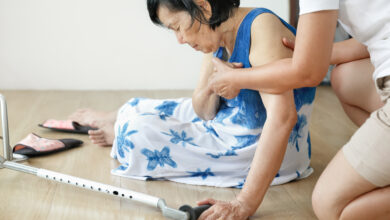Sweet then sharp
Sugar may be as effective as anaesthetic creams for babies receiving injections. By Aileen Macalintal
In the first 18 months of their lives, babies may receive as many as 15 injections, but sugar may offer a simple and effective way to reduce the pain of immunisation jabs. Researchers from Jordan University of Science and Technology, the University of Western Sydney (UWS) and the University of Technology, Sydney, have found that infants given a sweet-tasting solution had a shorter crying time than those given water.
Dr Jann Foster of the School of Nursing and Midwifery at UWS said that their hypothesis rests on the direct contact of sweet-tasting solutions with the taste receptors.
"Sweet-tasting solutions are thought to trigger the release of endogenous opioids and beta-endorphins," said Foster. "This reduces the transmission of pain signals to the central nervous system, leading to a feeling of comfort."
Fourteen studies were reviewed for this research, covering a total of 1551 infants aged from one month to a year. Foster noted that the evidence was not conclusive due to considerable variation in the way pain was measured in each study.
"The results have to be interpreted with caution," she said. "Overall, the studies show that different types of sugar-based solutions were effective, but we were not able to confidently assert that there is strong evidence for this treatment in reducing pain. We did find some evidence that babies may not cry for as long if given sugar-based solutions.
"No significant difference was found between sucrose and lidocaine-prilocaine cream in pain and cry duration.
"We were unable to identify the optimal concentration, volume or method of administration of sweet-tasting solutions or possible long-term effects in infants aged one to 12 months."
She said there was a need for a further study to explore possible adverse effects of using sweet solutions in the long term.
Liz Wilkes, president of Midwives Australia, thought the research "demonstrates an interesting point of view", but she added: "However, it is not conclusive and therefore practitioners and parents are encouraged to look at the research prior to adopting this practice."
Wilkes did think the study had potential: "I think that anything that reduces pain when babies receive injections is important, particularly for babies that may be under additional stress and receiving many injections, such as premature babies."
Email: [email protected]





